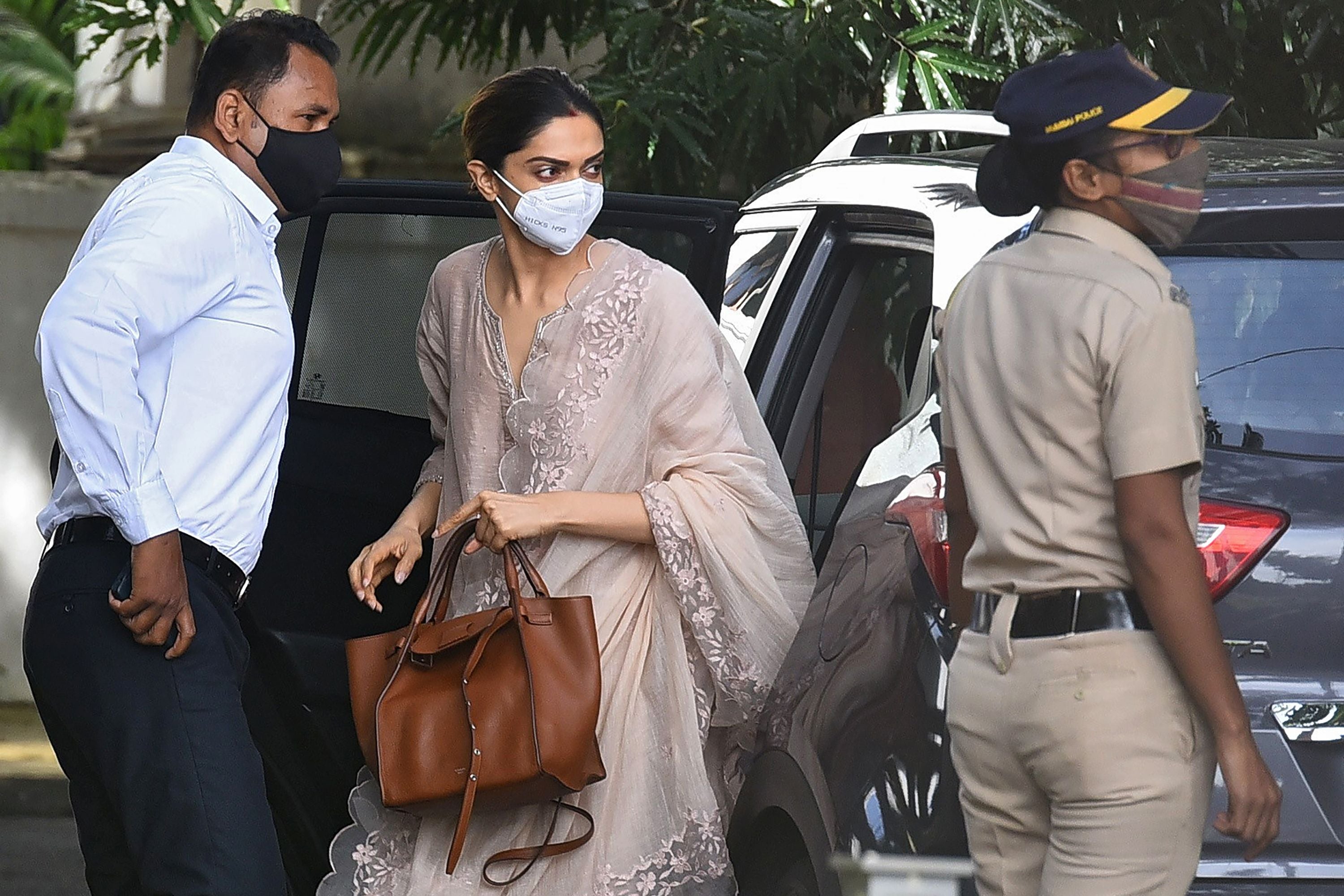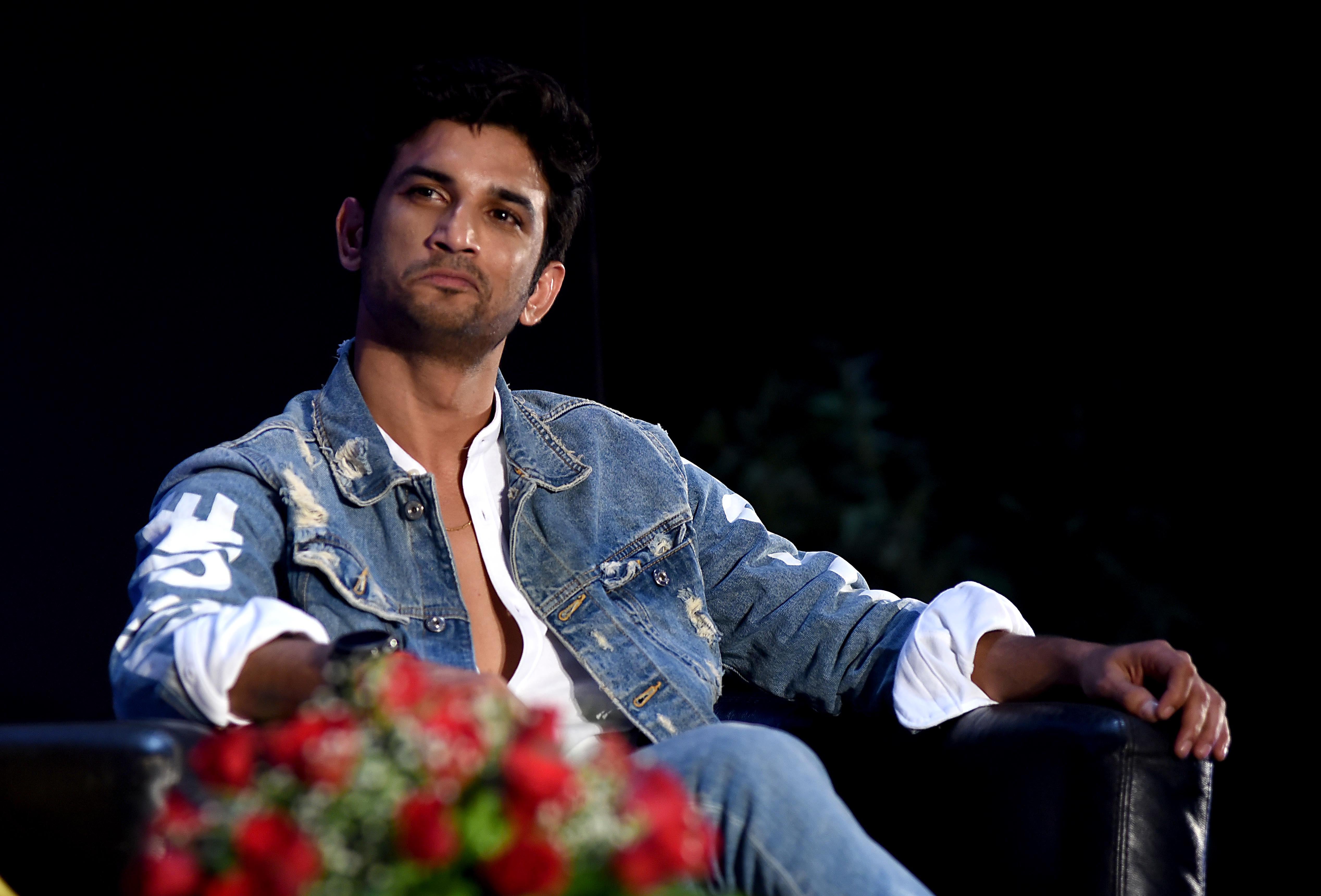‘Grossly unfair’: Death of Bollywood star sparks drugs crackdown where ‘only women are being targeted’
Sushant Singh Rajput’s death has been politicised, observers say, ahead of a key election. But the federal investigation that followed also speaks volumes about gender in Indian society, as Adam Withnall reports


When the promising young Bollywood actor Sushant Singh Rajput was found dead at his home in Mumbai in June, India mourned a rising star who police said appeared to have taken his own life at the age of 34.
Rajput’s death sparked a brief national conversation about mental health issues, before India appeared to have moved on – that is, until his family made a series of sensational claims against his girlfriend and fellow actor Rhea Chakraborty.
Accused by the family of providing cannabis to Rajput and ultimately abetting his suicide, Chakraborty was arrested in early September by the federal Narcotics Control Bureau (NCB). She has denied any wrongdoing.
But amid a media feeding frenzy that has dominated TV news channels in India at the expense of coverage of a worsening Covid-19 outbreak and stalling economy, the investigation has widened to involve three federal agencies and some of the biggest names in Bollywood.
The actors questioned by federal officials include top star Deepika Padukone, whose six-hour visit to the NCB offices in Mumbai received wall-to-wall coverage. Other actors questioned include Sara Ali Khan, Shraddha Kapoor and Rakul Preet Singh.
On social media, many have observed that the only high-profile stars being named in relation to the drugs probe are women.

Journalist Barkha Dutt questioned sceptically whether this means that “no men ‘do drugs’ in the movie industry”. Rohini Singh said that “as usual … only women [are] being targeted for allegedly smoking pot in Bollywood”.
And the MP Navneet Kaur Rana, herself a film actress, suggested that by failing to question any male celebrities, investigators were sending out a message that “either you are afraid of big-name heroes or you think women are weak”.
Speaking to The Independent, the writer and commentator Shobhaa De says that from the information reported on the drugs probe so far “it certainly appears like it’s women who are controlling the drug cartels in Bollywood – which is absolute nonsense”.
“It seems to me grossly unfair and gender-biased, in an environment in both Bollywood and the various government agencies [involved] which are dominated by men.”
The only top male star from Bollywood who has spoken on the issue of drugs, so far, is Akshay Kumar. In a video released a few days ago, Kumar stated that since the death of Rajput several issues including drugs have come out which have forced people involved in Bollywood to look within. “How can I keep the hand on heart and lie to you that this problem doesn’t exist? It certainly does … Drugs [are] a legal matter and I have full faith in the actions that our law enforcement agencies and courts are taking it on. I also know that every person in the film industry will fully cooperate with them,” said Kumar.
The NCB has not commented officially or publicly on its ongoing probe, but agents appear to be fuelling the ongoing story with a drip-feed of leaked information. Details of stars’ WhatsApp chats have emerged in the media, and this week the CNN-News18 channel quoted unnamed sources as saying the alleged “mastermind” of the drugs trade in Bollywood was an actress who used to be a supermodel.
Lines like this are irresistible to the TV news channels, which have seen big ratings boosts from covering what has been dubbed the “Bollywood drugs nexus”.
“It’s a never-ending saga of betrayal, intrigue, glamour – all kinds of elements of a soap opera are there in the news,” says Rasheed Kidwai, author of the book Neta Abhineta: Bollywood Star Power in Indian Politics.
In India, the worlds of politics and Bollywood have always been closely intertwined, with a rich history both of stars making the move into public service and of the government of the day taking a close interest in the narratives being produced and promoted for the silver screen.
Kidwai argues that there is a clear, cynical motive for a major federal crackdown on drug-taking in Bollywood at this time.
Rajput’s home state Bihar, the second most populous in India, goes to the polls later in October in the first major electoral test for Modi’s ruling BJP party since the start of the pandemic.
The prime minister was criticised for the manner in which India went into a national lockdown almost overnight back in March, rendering millions of migrant labourers – many of them from Bihar – jobless overnight.
Since then India has recorded more than 6.5 million confirmed Covid-19 cases and more than 100,000 deaths, putting it on course to overtake the US as the worst-affected country in the world.
The BJP is favourite to win in Bihar after securing a key alliance with a local party – but a loss would be seen as a damning indictment of the way the government has handled the coronavirus crisis.
With the economy also struggling, a sudden focus on Bollywood and a vocal campaign demanding “Justice for Sushant Singh Rajput” are being used to provide a “distraction” for voters, Kidwai says. “They [the politicians] are saying pay attention to the [Rajput] death and not to the real issues,” he tells The Independent. “Instead of fighting on these issues, they have curated a different narrative – it’s a tactic that has done very well for them on the national stage.”
Many observers have also noted a political angle to the identities of the specific women brought in for questioning in the drugs probe.
Padukone, the most prominent figure, in January visited Jawaharlal Nehru University (JNU) in Delhi in solidarity with left-wing students who were attacked by a right-wing mob on campus. The visit was seen at the time as a challenge to the government, and dismissed by its supporters as a PR stunt.
“The crackdown has a lot to do with sending out a fairly strong, menacing message to Bollywood [figures] not yet completely aligned with or sold out [to the government] as of now,” says De.
“We don’t know who is next. It’s scary,” a Bollywood producer, who did not want to be named, told the Reuters news agency last week, adding there were still fears more big names could emerge in the probe.
The NCB has not accused the actors Padukone, Khan, Kapoor or Singh of any wrongdoing, though it has seized some of their phones and laptops. Chakraborty, who has been denied bail, was reportedly arrested after details of money transfers were found from her credit card to alleged drug dealers.
In an initial charge sheet lodged by the federal agency, the NCB said its goal was “to uproot the citadel of drugs in Bollywood”. In total 20 people have been arrested so far.
Join our commenting forum
Join thought-provoking conversations, follow other Independent readers and see their replies
Comments
Bookmark popover
Removed from bookmarks